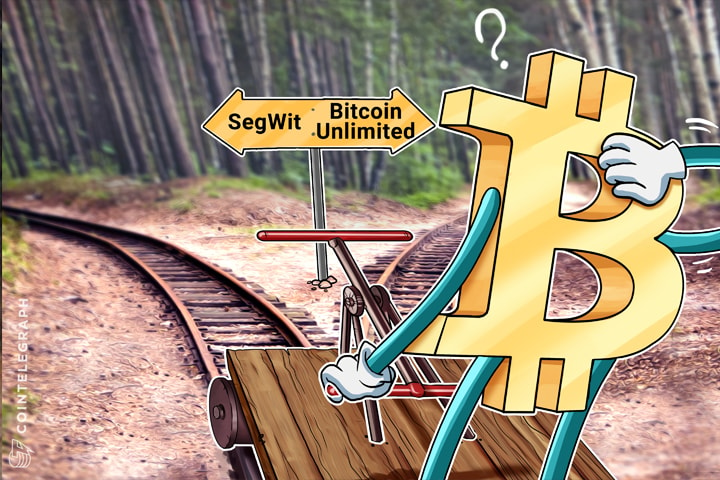The divide within the Bitcoin community is becoming wider as the necessity for Bitcoin scaling becomes much more pronounced.
A fork of Dash, Private Instant Verified Transaction, (PIVX) claims to have embarked on a process to change what it describes as the “centralized” nature of the voting process within the industry.
Currently running a “Masternode” system which it inherited from Dash, Eric Stanek, Team Member at PIVX infers that Satoshi’s original intent was that millions of individuals will be mining away on their GPUs, therefore power within the community will be truly decentralized. Rather what is obtainable today is power being centralized to a few massive mining farms.
Bitcoin divide
With the introduction of both Segregated Witness and Bitcoin Unlimited and the consensus nature of Bitcoin governance, a lot of users may still be very unclear about the decision-making process within the community. Hence the shade of confusion hovering above the Bitcoin ecosystem.
Michael Vogel, CEO of Netcoins, explains it this way:
“These are certainly unsettling times for Bitcoin, and we are witnessing history being written before our eyes. I think it's important to note that over the long term, this likely won't be the last divide within the Bitcoin community, and that isn't necessarily a bad thing - innovation is usually a byproduct of these types of situations.”
Being a system that is based on proof of work, the decision-making process lies in the hands of miners within the decentralized Bitcoin ecosystem. It is the miners whose votes will determine the next turn for Bitcoin.
The partial centralization of Bitcoin
Vogel explains that the ability to vote for changes to Bitcoin is essentially proportional to the computing power that each miner contributes to the Bitcoin network. This explains the fact that Bitcoin is based on Proof of Work (PoW). Vogel also notes that there is no preset voting period, so miners can vote for changes to Bitcoin at any time. In theory, this is a very elegant and unique way of handling the evolution of Bitcoin, although it does mean that the interests of miners guide the direction of Bitcoin.
This explains why statements credited to top miners within the industry regarding Bitcoin scaling usually have a significant impact on both Bitcoin price and its general behavior.
The comparison between Bitcoin’s Proof of Work (PoW) and other services such as DASH’s Proof of Service (PoS) and PIVX Proof of Stake (PoS) also exists in some quarters.
A common scenario in both cases, however, is the possibility of a partial centralization of the system by early adopters who may actually be a smaller fraction of the entire users of the given system.
An example in Bitcoin is the situation where mining has become more difficult and less profitable that in the previous years, therefore new participants aren’t necessarily attracted to mining. A larger percentage of participants within the system, who will definitely be affected by the end result of the voting process will have no say in determining the future of the environment within which they are participating.
Back to the future
In its attempt to change the status quo and create a governance system where everyone has a voice, Eric Stanek says that PIVX is working on a proposal that will only require a YES or NO response from members of the community.
This, according to him will influence the content of the PIVX manifesto and would be factored in early enough in order to avoid such a scenario as is presently experienced in Bitcoin and Dash where development has gone so far that changing the system has become almost impossible.
Flexible
For systems that operate by Proof of Service (PoS) like Dash, which is more flexible as for the purpose of decision making, only members of the community who own Masternodes can vote. This system also sidelines smaller investors, who actually make up the majority of the community.
One may argue that the patterns employed by these communities are reasonably appropriate, owing to the fact that only major investors whether in “Work” or “Stake” will be more critical about issues that concern their respective communities, therefore would appear as delegates in these democratic settings.


